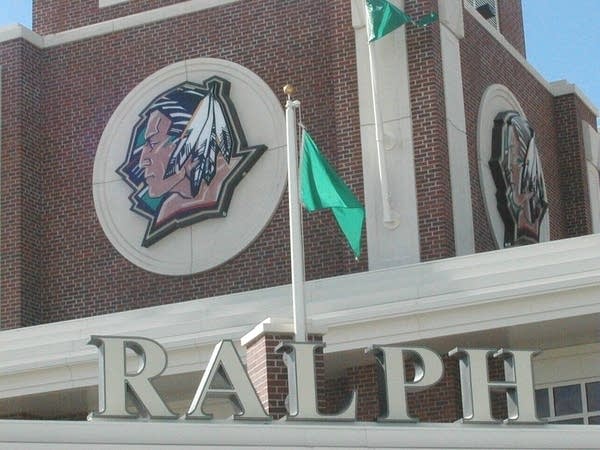Tribes to decide fate of Fighting Sioux nickname

Some American Indian groups have protested the Fighting Sioux nickname for years.
The NCAA weighed in about two years ago when it listed the University of North Dakota nickname "hostile or abusive."

That ruling meant UND could not host lucrative post-season championships, and UND teams playing in post-season games could not use the nickname.
UND first appealed the NCAA decision, then last year, the university filed suit contending the NCAA overreached its authority.
Create a More Connected Minnesota
MPR News is your trusted resource for the news you need. With your support, MPR News brings accessible, courageous journalism and authentic conversation to everyone - free of paywalls and barriers. Your gift makes a difference.
North Dakota Attorney General Wayne Stenehjem says without a negotiated settlement, the dispute will never end.
"This is a legally logical settlement, and in fact I think as a practical matter, it is the only realistic settlement of this arrangement that is going to make sense at this point," says Stenehjem.
The settlement allows UND to use the Fighting Sioux nickname and logo for three more years.

During that time, the state will discuss the matter with neighboring American Indian tribes. Attorney General Stenehjem says state officials will try to convince the Standing Rock and Spirit Lake tribes to support UND's use of the Fighting Sioux nickname and logo.
"If we are able to obtain that approval, then the university would be able to continue using the nickname and logo and associated imagery," explains Stenehjem. "If not, the university would be required, if it wants to host post-season championship events, to transition to a new name and acquire a new logo."
Tribal leaders were not available to comment for this story, but published reports quote unnamed American Indian tribal leaders saying the settlement unfairly puts pressure on them.
The settlement puts tribal leaders in the middle of a contentious dispute, where any decision will upset one side or the other.
If they approve the Fighting Sioux nickname, UND will be allowed to continue using it. If the tribes reject the nickname, UND will need to choose a new nickname and logo in three years.

NCAA spokesman Bob Williams says it's appropriate for the final decision to rest with Indian tribes whose name is being used.
"It's consistent with previous actions, from the standpoint that we defer to the namesake tribes to determine if and how their names and imagery will be used," says Williams. "What's different obviously is the time period, but that was part of the negotiated settlement."
As part of the agreement, the NCAA will issue a public statement saying it did not find the Fighting Sioux nickname created a hostile and abusive environment on the Grand Forks campus.
If the nickname is changed, UND would have to remove most of the Fighting Sioux-related Indian images on campus.
UND would be allowed to keep historical items, and items like logos embedded in granite at Ralph Englestad arena, the $100 million home to the UND hockey team.


